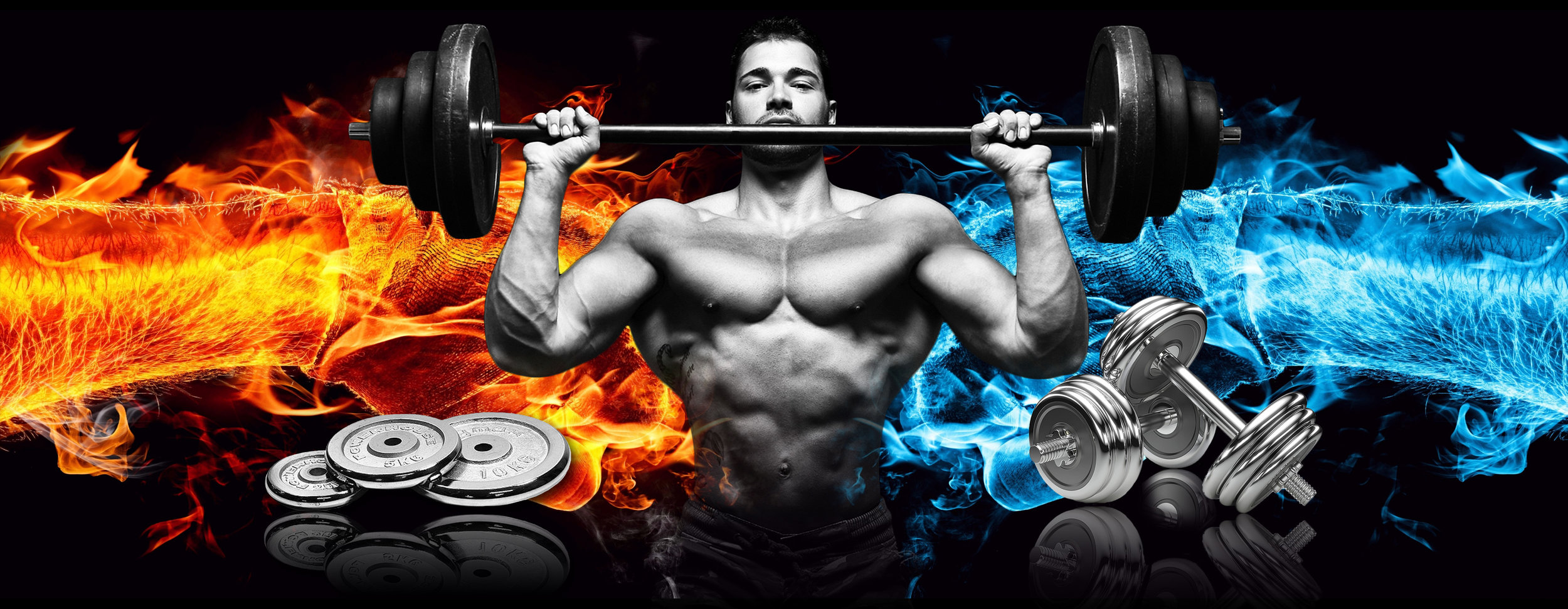Taurine Improves Recovery, Markers of Musculoskeletal Strength, and Body Composition
Taurine or L-Taurine is an amino acid that is considered to be the second most abundant in the body's muscle after glutamine. However, with new research scientists are beginning to think that taurine is the most abundant in the body's Type II muscle fibers, even more so than glutamine, which has led to much speculation for power athletes (1). Dairy products, meat, poultry, eggs, and fish are excellent natural sources of taurine. Taurine has been known to increase muscle mass, muscle strength, power, reduces muscle damage caused by exercise, accelerate recovery between workouts, and may also have an insulin-like effect in the body. The processes by which these functions take place are not yet clearly known. However it appears that taurine has several critical functions and can act similarly to creatine in that it expands the body's cells by helping the muscle cell itself hold more water, thus increasing cell volume. It has been theorized that all these may be very important to high performance athletes as it helps in protein synthesis and thus muscle hypertrophy. Additionally, another theory is that taurine enhances structural contractile capabilities in the muscle itself and thus may aid the lifter in handling heavier weights. High muscle concentrations of taurine also seem to be of the utmost importance in aiding high performance athletes.
There have been a relatively high amount of studies performed on taurine. It is of great importance to note that these studies are of two distinct cases. One is to assess whether taurine supplementation can significantly manipulate taurine levels in the human body. This has been due to the negative speculation regarding the ineffectiveness of being able to change one's natural taurine levels. Secondly, there had to be a conclusion as to whether or not high levels of taurine in the human body had an effect one way or the other on human performance.
In a study performed by Yatabe et al (2) it appears that oral supplementation of taurine was effective at maintaining proper levels of taurine in the body compared to other control groups. Specifically there were two groups: one that used taurine and a control that received a placebo. After a two week study involving methods of taurine depletion such as intense and exhaustive exercise those who used taurine did not have any depletion of the amino acid in their body. Furthermore, there were also positive signs that showed potential long term beneficial endurance effects.
Another study on taurine dealing with a slightly different positive aspect of supplementation was performed by Hamilton et al (2). This study examined the effects of taurine depleted muscles. Simply put it was found that normal to slightly higher levels of taurine increases force production in skeletal muscle but taurine levels may fall during exercise. Thus a fall in taurine levels decreased force output. Therefore, one can draw an indirect conclusion based on this study and the previously mentioned study. It can be seen that by supplementing with taurine, which has been known to increase and maintain optimal levels of taurine in the body, performance and muscular power will be optimized. This is due to a correlation between optimal performance and normal/optimal taurine levels.
Another very interesting yet distinct study deals with the duration of exercise in relation to the degree of taurine depletion in the human body. Matsuzaki et al (3) examined the changes of taurine concentrations in blood and skeletal muscles after transient exercise. There were four groups: a control group, and either a 30, 60, or 100 minute exercise groups. Taurine measurements in the body were taken before and after the bout of exercise to determine rate of depletion. It appears from results that duration of exercise has no significant impact on levels of depletion, although a significant and equal level of depletion was experienced in all groups.
Simply put, taurine concentration was decreased in all skeletal muscles after exercise, regardless of the duration. Moreover, this decrease was specific to fast-twitch dominant fibers. This may be of key importance to various types of athletes due to a wide range of sports specific activities that must be accomplished for an athlete to achieve success. Whether an athlete is participating in a short yet intense workout session or a lengthy moderately intense activity, taurine depletion will be equal. Thus it appears that most if not all athletes may benefit from supplementing with taurine.
Other studies with taurine have shown interesting findings, although somewhat unrelated to high performance. In a six week study of taurine supplementation, Kohashi et al (4) noticed that 6 grams of taurine a day reduced systolic, diastolic, and mean blood pressure in subjects with hypertension. Of further note is that Fujita et al (5) noticed these exact findings in a study that lasted for only a period of seven days.
There have been several studies that have strictly examined the effects of taurine supplementation on endurance athletes. It was found that left ventricular contractility was increased thus lowering heart rates at sub-maximal intensities (6). The authors note that this may be one of the main reasons that drinks such as red bull and other derivatives may improve maximal aerobic, anaerobic, and mental performance (7).
As already stated, with high intensity exercise, blood levels of taurine immediately increase but deplete rapidly, possibly due to its release from muscle fibers. Therefore supplementation minimizes any depletion. Of further note, taurine has been advocated to enhance attention, cognitive performance, and feelings of well being (8). One study investigated these effects on mental cognition by having their subjects supplement with caffeine and taurine. It was found that these ingredients together had a positive effect on mental performance and mood. However, since a combination of substances was used it is unknown how much taurine contributed to its effect (8).
Summary and Recommendation
Taurine currently has very little research to thoroughly support its supplementation. However, as seen through several of the above studies it may appear to be of general aid to most athletes. Some of the more apparent benefits seen with taurine include: maintenance of taurine levels during exhaustive exercise (which is vital for optimal performance), reduction of blood pressure, enhanced attention and cognitive performance, enhanced feelings of well being, and improved maximal aerobic, anaerobic, and mental performance. It also appears that by maintaining proper taurine levels in the body through supplementation, force production, strength, and muscular power will be optimized.
Dosage recommendations for taurine seem to be somewhat unclear at this time. However, most reputable companies suggest 500mg-3,000mg per day as the standard dosage. However, dosages up to 6,000mg have been seen in cardiac patients trying to lower blood pressure. Although timing is not as much of a factor as other supplements, taking a small dose of taurine before and after training may be optimal for enhancing performance. Toxicity is currently not an issue with taurine. However, athletes may not want to exceed 3,000mg as more does not seem to have any added benefit on performance.
Due to the fact that taurine is somewhat new to the supplement industry consumerlab.com has little to no information regarding taurine. Therefore, some of the most noted taurine products from other sources include: NOW Taurine, SciFit L-Taurine, Twinlab Mega Taurine, Optimum Nutrition CGT 10, Physiologics L-Taurine, and S.A.N. Fierce Taurine.
References
1. Bratman, Steven. Taurine. Natural Health Bible. 2000; 420-421.
2. Yatabe Y, Miyakawa S, Miyazaki T, Matsuzaki Y, Ochiai N. Effects of taurine administration in rat skeletal muscles on exercise. J Orthop Sci. 2003; 8(3): 415-9.
3. Hamilton EJ, Berg HM, Easton CJ, Bakker AJ. The effect of taurine depletion on the contractile properties and fatigue in fast-twitch skeletal muscle of the mouse. Amino Acids. 2006 Oct; 31(3): 273-8. Epub 2006 Apr 4.
4. Kohashi, N., Katori, R. Decrease of urinary taurine in essential hypertension. Prog. Clin. Bio. Med. 1983. 125, 73.
5. Fujita, T. Ando, K., Noda, H., Ito, Y., Sato. Y. Effects of increased adreomedullary activity and taurine in young patients with borderline hypertension. Circulation. 1987. 75, 525.
6. Baum, M., Weib, M. The influence of a taurine-containing drink on cardiac parameters before and after exercise measured by echocardiography. Amino Acids. 2001. 20, 75.
7. Geiss, K.R., Jester, I., Falke. W., Hamm, M., Waag, K.L. The effect of a taurine-containing drink on performance in ten endurance athletes. Amino Acids. 1994. 7, 45.
8. Kleiner, S., Taurine. Power Eating. 2007. 179-180.























